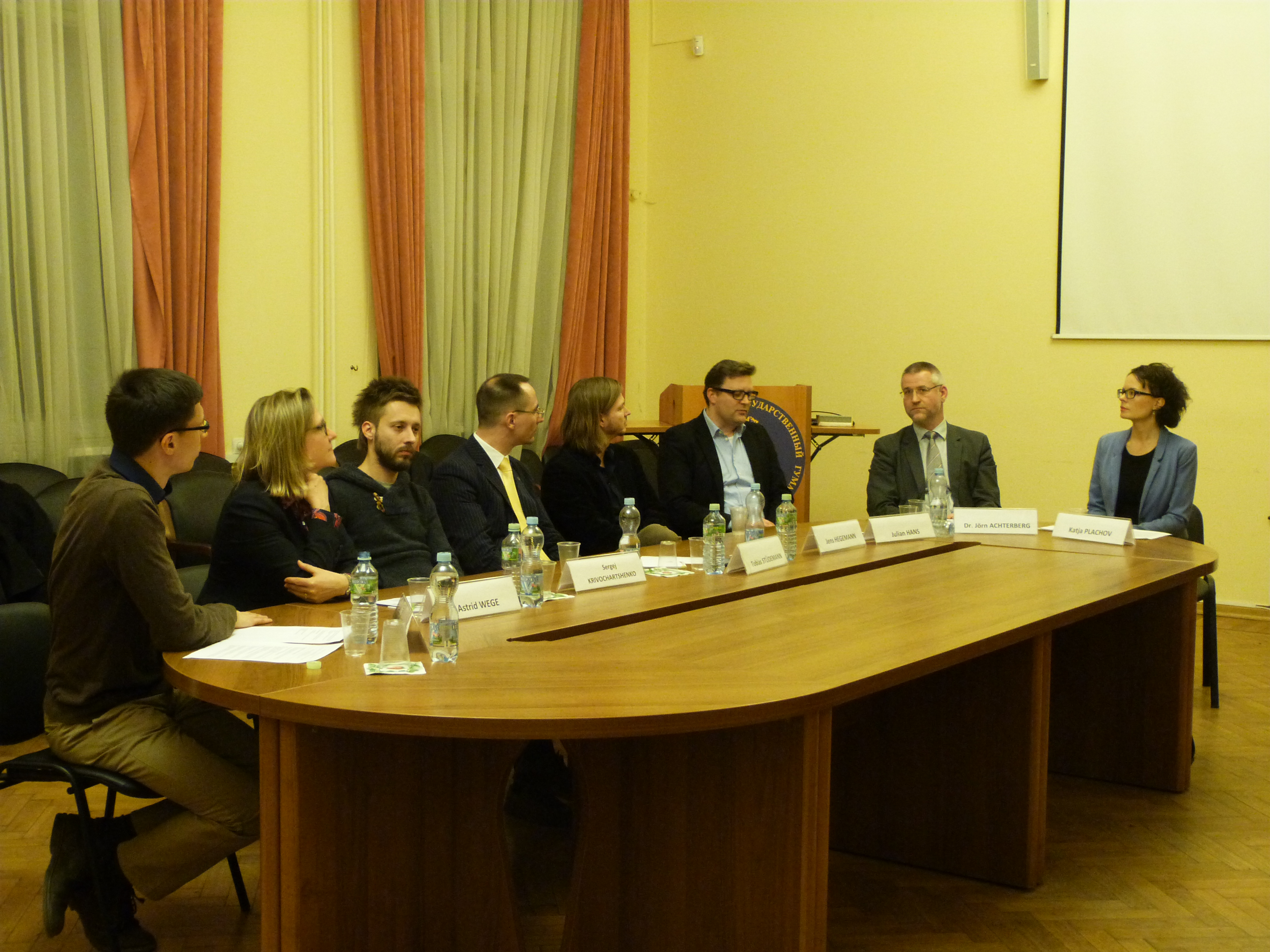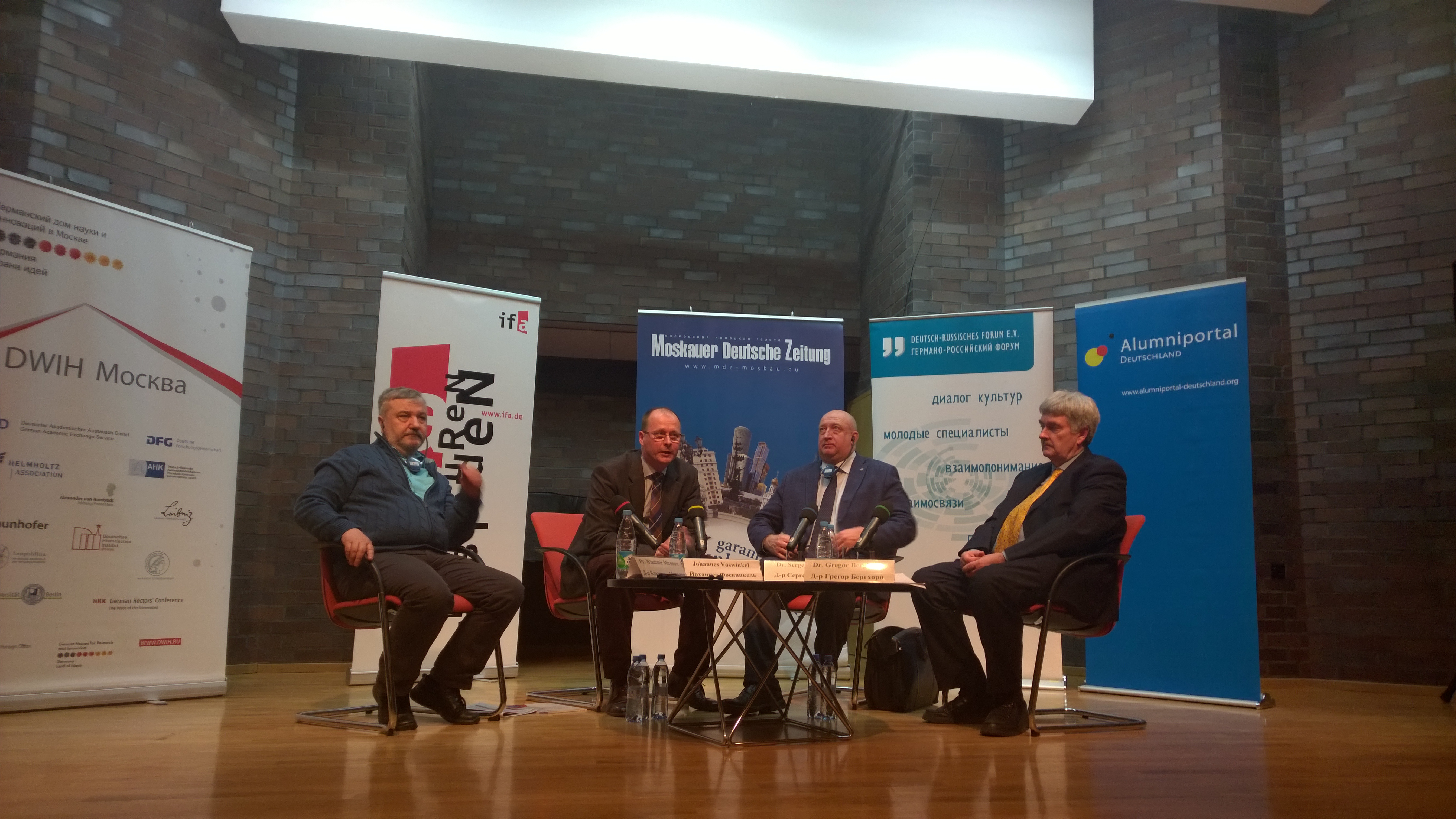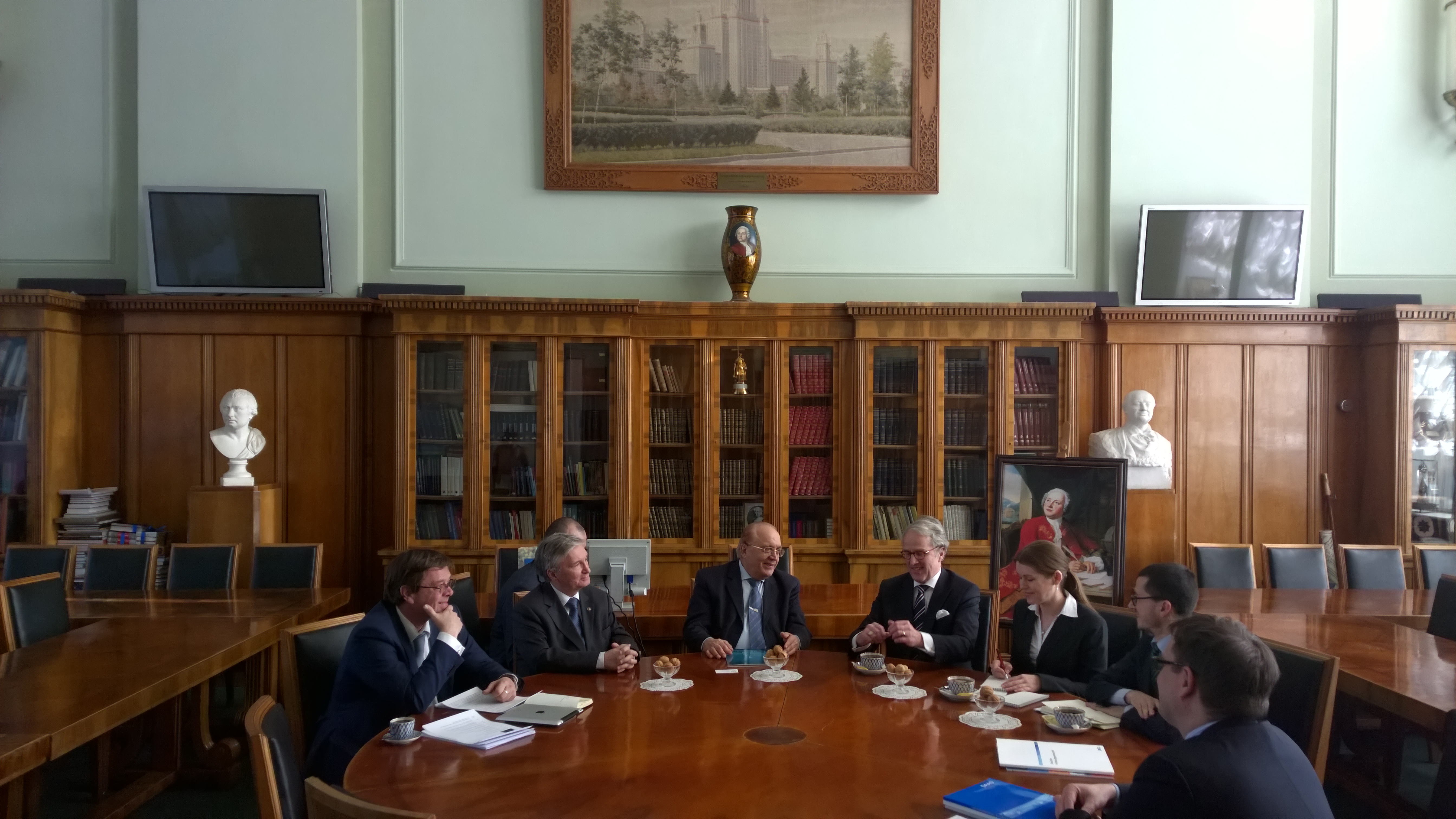Science and the Humanities in Dialogue
(26.03.15) This month, the Deutsche Forschungsgemeinschaft (DFG, German Research Foundation) participated in three panel discussions in Moscow on the reform of the Russian research landscape, the professional profiles of intercultural mediators and the role of research and education in current German-Russian dialogue. On the evening of 18 March, early career researchers from the University of Freiburg, members of the DFG-funded International Research Training Group IRTG 1956, hosted an event at the Russian State University for the Humanities (RSUH). This was followed the next day by the first session of the "Moscow Talks" series in 2015 at the German Embassy and on 23 March the German ambassador, Rüdiger von Fritsch, delivered a lecture at the Moscow State University.

Panel discussion with doctoral researchers from the International Research Training Group IRTG 1956 at the RSUH in Moscow
One week after the launch of the first DFG-funded German-Russian International Research Training Group (IRTG) in the humanities, the doctoral researchers in IRTG 1956 "Culture Transfer and Cultural Identity" organised a panel discussion between the Albert Ludwig University in Freiburg and the RSUH Moscow. Chaired by Katja Plachov and Gleb Kazakov, the evening event was devoted to the subject of the current professional profiles and the demands made of "Intercultural mediators between Russia and Germany". Representatives from the DFG's Moscow office and the Free University of Berlin, members of the Goethe Institute and the German Academic Exchange Service (DAAD), as well as journalists and correspondents working for German television companies and German newspapers, spoke about their personal experiences. At the close of the event, the Pro-Rector of the host university, Vera Zabotkina, expressed her hope that there would soon be more meetings of this group of engaged early career researchers at the RSUH.

The subject of the first session of the "Moscow Talks" series in 2015 was "Science, the Humanities and Education in Russia".
The discussion on the following evening was focussed more on the current reforms in the Russian university and education landscape and their impact on cooperation with Germany in science, the humanities and research. This first event in the "Moscow Talks" series, which addresses topical issues in a German-Russian context, was attended by students, researchers and lecturers and by members of a wider audience in the German Embassy in Moscow. A panel of experts, made up of representatives from the German House for Research and Innovation (DWIH) in Moscow and from the Moscow State University, was chaired by the German journalist Johannes Voswinkel, who has been the head of the Moscow office of "Die Zeit" for many years. A comparative analysis of the education systems in Germany and Russia revealed many differences yet also certain similarities. The Head of the DFG Office in Russia, Jörn Achterberg, pointed out the opportunities that parallel development in Germany and the reform process in Russia would offer bilateral cooperation. For example, the Excellence Initiative by the Federal Government and the Federal States in Germany implemented by the DFG and the German Council of Science and Humanities and the establishment of national research universities in Russia would strengthen the potential for research cooperation in the university sector.

The German delegation with Ambassador von Fritsch, guests of Rector Sadovnitschij at the Moscow State University.
At the end of March, a German delegation including Ambassador Rüdiger von Fritsch visited the Rector's offices at the leading Russian university, the Lomonosov University in Moscow. In discussion with the Rector, Viktor Sadovnitschij, both sides stressed the long tradition of successful relations between German and Russian universities, stating that science, the humanities and research must continue to offer a platform for exchange and dialogue between our two cultures. In this context, Jörn Achterberg (DFG Moscow) also referred to long-term joint programmes for early career researchers, such as the International Research Training Group IRTG 1956 with the universities of Giessen and Marburg that the DGF has been funding at the Moscow State University with its partner organisation the RFBR, the Russian Foundation for Basic Research, for almost nine years. Following the meeting in the Rector's offices, Ambassador von Fritsch gave a talk at the Historical Faculty on German-Russian relations past and present and in the discussion that followed answered numerous questions from the students.